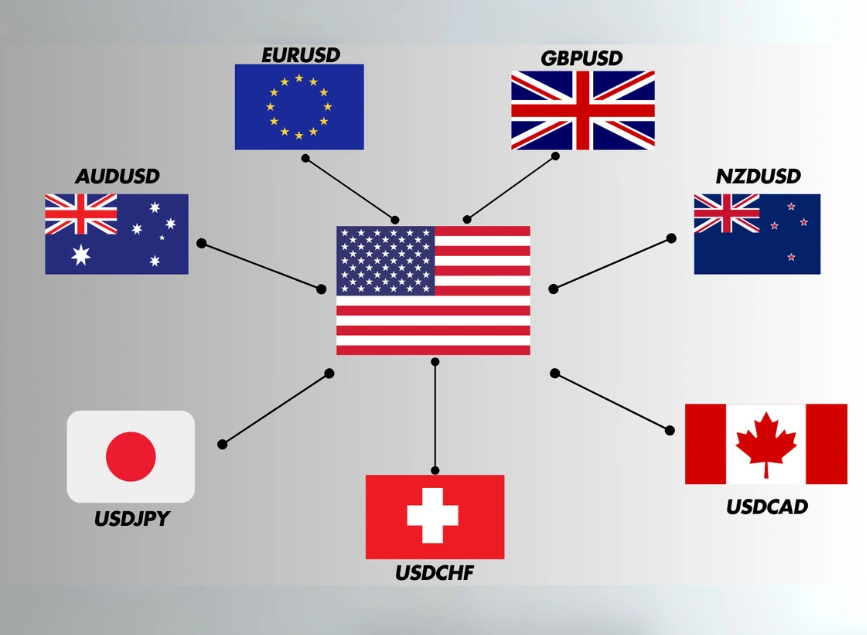
What Is the PCE Index and Why Is It Important in Markets?
Estimated reading time: 3 minutes
Table of contents
The Personal Consumption Expenditures Price Index (PCE) measures consumer inflation in the U.S. economy. It tracks changes in the prices of goods and services actually purchased by households, making it one of the most accurate tools for assessing price behavior in macroeconomics.
📌 Key Point: Contrary to popular belief, the Federal Reserve does not rely on CPI as its main inflation gauge. Instead, it uses the Core PCE as its official metric for monetary policy decisions.
Components of the PCE Index
The PCE index includes three main categories of household spending:
- 🛠️ Durable goods: Cars, appliances, computers
- 🛍️ Nondurable goods: Food, clothing, gasoline
- 🏥 Services: Housing rent, healthcare, insurance, education
📌 Main Difference from CPI:
PCE weights adjust over time based on actual consumer behavior, while CPI uses a fixed basket of goods and services.
Read More: What is the DXY Index?
Types of PCE Index
- Headline PCE: Includes all items, including food and energy
- Core PCE: Excludes volatile food and energy prices
⚠️ The Fed focuses more on Core PCE because it removes short-term price fluctuations and provides a clearer view of long-term inflation trends.
Release Schedule
- Publisher: U.S. Bureau of Economic Analysis (BEA)
- Release Date: End of each month (about one week after CPI)
- Official Website: bea.gov
Why PCE Matters to Markets
Primary Indicator for Fed Decisions
The FOMC bases interest rate policies on the Core PCE (target: 2%).
→ Higher-than-expected Core PCE = Potential rate hikes
Direct Driver of the U.S. Dollar
🔺 Higher PCE → Rate hike expectations → Stronger USD
🔻 Lower PCE → Rate cut/speculation → Weaker USD
Market Impact
| Asset | Reaction to Higher PCE |
|---|---|
| 🪙 Gold | Usually bearish (stronger USD, higher rates) |
| 💻 Crypto | Short-term sell pressure |
| 🧾 Bonds | Prices fall (yields rise) |
| 📈 Stocks | Typically bearish (esp. growth stocks) |
Example: PCE’s Effect on Fed Policy
If monthly Core PCE comes in higher than expected (e.g., 0.5% vs 0.3% forecast):
- Markets anticipate more aggressive Fed tightening
- USD strengthens, stocks may decline
- Gold and Bitcoin might spike due to inflation fears
PCE vs CPI – Key Differences
| Feature | PCE | CPI |
|---|---|---|
| Issuer | BEA | Bureau of Labor Statistics (BLS) |
| Weighting Method | Based on actual behavior | Fixed basket |
| Medical Services Coverage | More comprehensive (includes insurer & gov. payments) | Limited |
| Fed’s Reference Index | ✅ Yes | ❌ No (used for monitoring only) |
Trading Strategies Based on PCE
1. Rate Play Strategy
If Core PCE > forecast:
- Rate hike expectations rise
- USD strengthens
📌 Strategy:
→ Sell EUR/USD, sell gold, buy USD/JPY
If Core PCE < forecast:
- Lower rate hike expectations
- USD weakens
📌 Strategy:
→ Buy gold, buy S&P 500, buy Bitcoin
2. CPI vs PCE Divergence
If CPI shows high inflation but PCE comes in lower:
- Markets may experience false volatility
- The Fed may stay cautious
📌 Strategy:
→ Use intraday swings for short-term scalping (e.g., USD Index trades)
3. Correlating Gold & USD
- High Core PCE:
→ Buy DXY, sell XAU/USD - Low Core PCE:
→ Buy XAU/USD, sell USD/CAD
Read More: U.S. Stock Market: A Comprehensive Guide
Final Analytical Notes
- Analyze PCE alongside GDP and NFP for a full macro picture
- CPI may create more volatility, but PCE has greater policy relevance
- Always review both MoM and YoY Core PCE values for a complete perspective
Final Summary
The PCE Index is not only more accurate and realistic than the CPI, but also serves as the Federal Reserve’s official inflation gauge. For every serious trader in forex, crypto, or stocks, monthly tracking and analysis of Core PCE is a must-have tool for crafting effective strategies.
This index helps traders:
- Anticipate rate changes
- Understand inflationary trends
- Position themselves more intelligently in the market
Share
Hot topics

Trading with price action
When they start, most traders will believe that they must discover the ideal indicator for success. At otet markets, we see this every day.They test a variety of indicators, including...
Read more




Submit comment
Your email address will not be published. Required fields are marked *